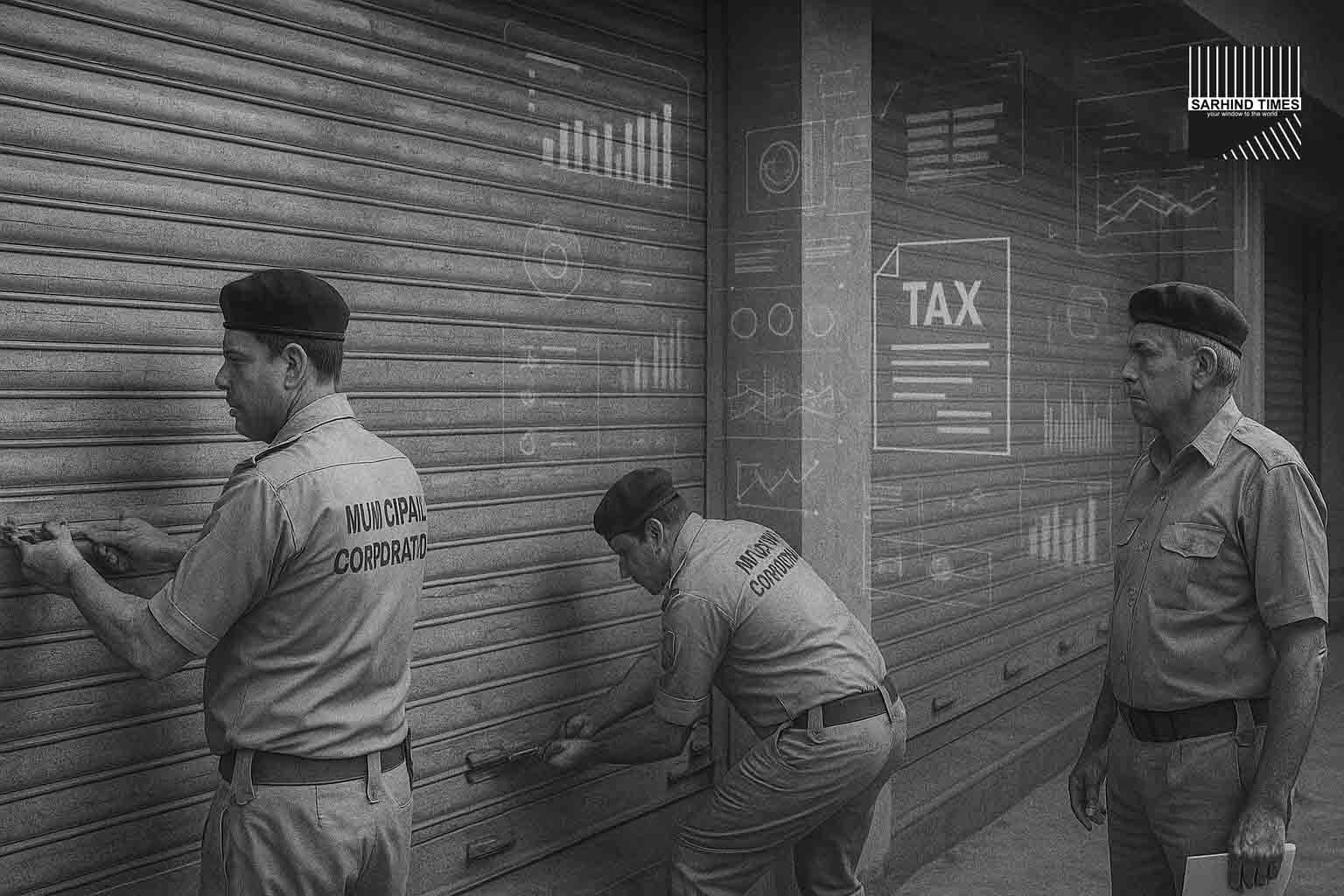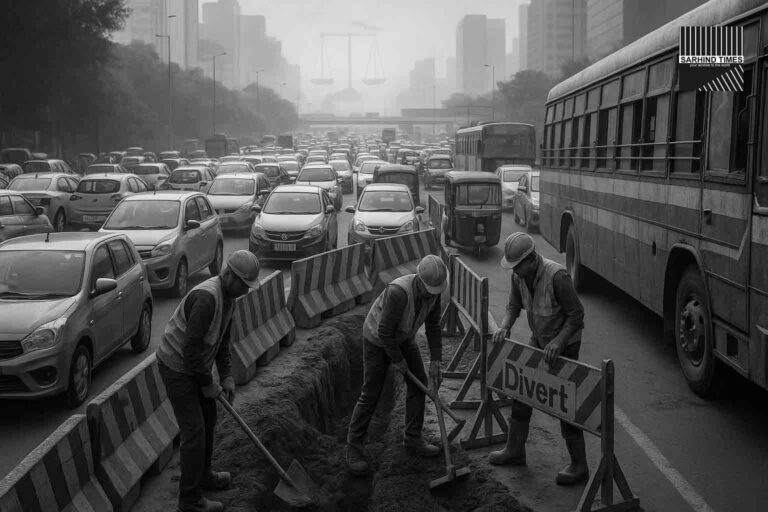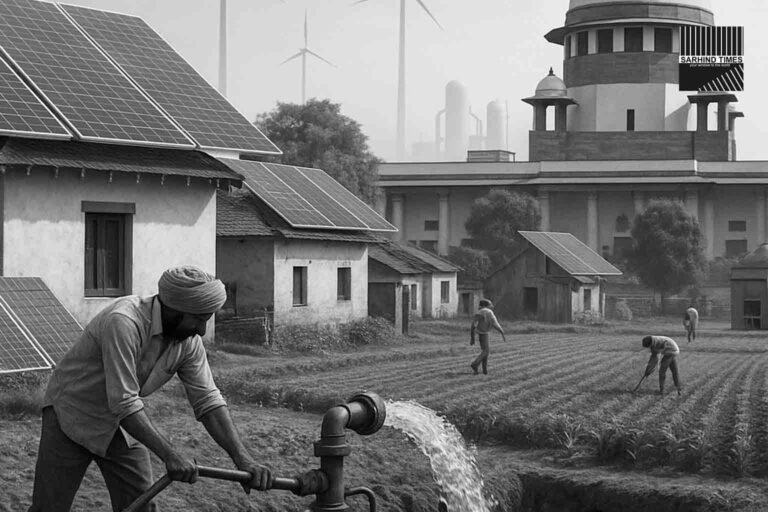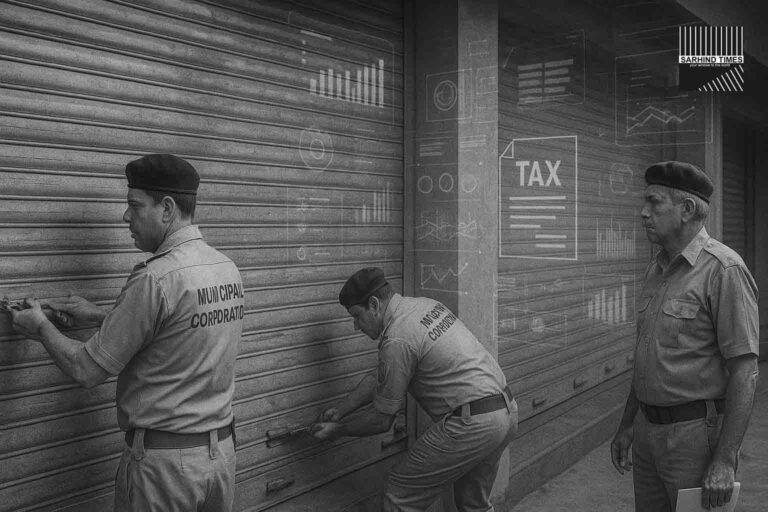16 Sep 2025
Gurgaon’s Civic Body Gets Tough
The Municipal Corporation of Gurgaon (MCG) is preparing to launch a decisive sealing drive against commercial and industrial property owners who have defaulted on property tax payments exceeding ₹1 crore each. Around 65 such properties have been identified. This is one of the most stringent enforcement actions in recent years and comes at a time when urban governance in fast-growing cities like Gurgaon faces the twin challenges of rising infrastructure needs and lagging revenue collection.
The move has sparked debate among business owners, residents, and policy experts. While many see it as a necessary step to ensure compliance, others fear it could disrupt commerce and create administrative disputes.
Why Property Tax Matters
Property tax is one of the primary sources of revenue for municipal corporations in India. In Gurgaon, these funds are essential for maintaining roads, managing waste, providing water and electricity, and funding public amenities.
For FY 2025, the MCG set a target of ₹275 crore in property tax revenue. By August, it had collected ₹200 crore—about 72% of the target. While this looks impressive on paper, a closer look shows that a significant portion of dues remains stuck with large property owners.
The Mechanics of the Sealing Drive
The sealing drive will specifically target defaulters owing more than ₹1 crore each—a list dominated by commercial complexes, industrial units, and high-value real estate.
Key elements of the plan include:
- AI-Assisted Tracking: The MCG has deployed artificial intelligence tools to map defaulters, cross-check property data, and automate notice generation.
- Digital Payment Systems: Defaulters are being nudged towards quick settlement through online portals with real-time payment updates.
- Physical Sealing Teams: Enforcement squads will be dispatched with the authority to lock and seal non-compliant premises.
- Appeal Mechanism: Property owners will have the right to challenge sealing orders through designated appellate bodies.
Property Tax Structure in Gurgaon
The city follows a slab-based property tax system:
- Homes up to 300 sq. yards → ₹1 per sq. yard.
- Mid-sized properties → escalating rates.
- Properties larger than 2 acres → ₹10 per sq. yard.
These slabs aim to ensure fairness—smaller homeowners pay nominal taxes, while larger commercial landowners shoulder more responsibility.
AI in Civic Governance
The use of AI in this drive reflects a larger trend of data-driven governance. Gurgaon has experimented with:
- AI chatbots for property tax queries.
- Predictive analytics to identify likely defaulters.
- Digital dashboards for real-time monitoring of collections.
Officials argue that these technologies not only increase efficiency but also reduce opportunities for corruption.
Reactions from Stakeholders
- MCG Officials: “We cannot build a world-class city if large property owners flout tax rules. This sealing drive is about fairness and accountability,” said a senior MCG officer.
- Business Owners: Some commercial landlords fear disruption. “Sealing premises could hurt tenants who have nothing to do with unpaid taxes. The corporation should explore payment plans first,” said a property owner at Udyog Vihar.
- Residents’ Associations: Many citizens welcome the step. “If big defaulters don’t pay, the burden falls on smaller taxpayers. The MCG must act firmly,” said RWA leader Meenakshi Sharma from DLF Phase 3.
Broader Implications
The Gurgaon case highlights larger challenges in India’s urban finance:
- Revenue Dependence: Most municipal corporations struggle with limited sources of income. Property tax remains under-collected across Indian cities.
- Enforcement vs. Business Sentiment: Strict enforcement can create investor concerns, especially in cities marketed as business hubs.
- Technology Adoption: AI-led initiatives could be replicated elsewhere if successful, making Gurgaon a test case for “smart governance.”
The Political Angle
Property tax enforcement is often politically sensitive. Targeting big property owners could win public support but risks backlash from influential lobbies. The upcoming local body elections in Haryana add an extra layer of complexity to the MCG’s decision.
Lessons from Other Cities
Other Indian metros like Bengaluru, Mumbai, and Hyderabad have also experimented with aggressive property tax recovery. Success has varied:
- Mumbai: Regular sealing and auctioning of defaulter properties raised compliance significantly.
- Bengaluru: Digital mapping of properties revealed thousands of unassessed buildings.
- Hyderabad: Amnesty schemes paired with strict enforcement boosted revenues.
Gurgaon’s model, with AI integration, could emerge as a national benchmark.
Looking Ahead
The sealing drive is expected to start in the coming weeks. The true measure of success will not just be the immediate revenue gain but also whether it improves long-term compliance.
If executed fairly and transparently, this initiative could:
- Strengthen Gurgaon’s finances.
- Improve public trust in governance.
- Demonstrate how technology can plug revenue leakages.
However, mishandling—such as arbitrary sealing or lack of appeals—could erode credibility and spark litigation.
Conclusion
The Gurgaon sealing drive marks a bold experiment in civic governance. By targeting large defaulters with AI-powered enforcement, the MCG is signaling a new era of accountability. It is also a reminder that for India’s cities to grow sustainably, urban governance must be both innovative and uncompromising.
The coming months will reveal whether Gurgaon sets a positive precedent or ignites fresh controversy in the ongoing struggle to balance growth, fairness, and governance.
#Gurgaon #PropertyTax #CivicAction #UrbanGovernance #RevenueCollection #MCG #LawAndOrder #SmartCity




















+ There are no comments
Add yours